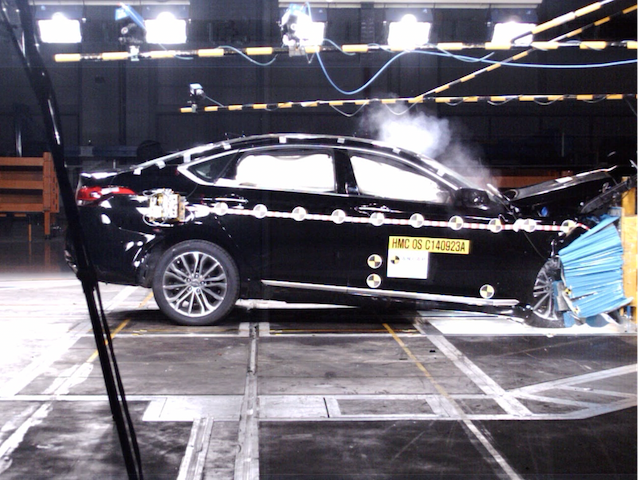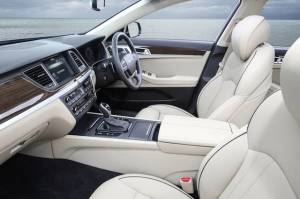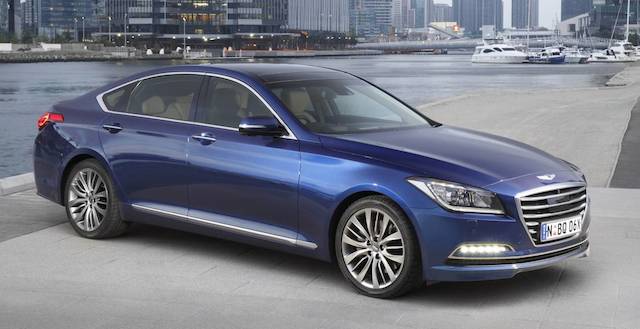
This time last year Hyundai NZ general manager Andy Sinclair said he expected the company’s new Genesis sedan to be awarded the maximum five stars for safety under the Australiasian New Car Assessment Programme.
“Fifty-one per cent of the car has high-tensile steel – we expect its crash test result to be very high,” he said. Sinclair therefore was hardly surprised when the Genesis scored a record 36.88 points out of possible 37 in the independent ANCAP crash test (above). The Genesis goes on sale in Australia this month and in New Zealand in February.
Its maximum five-star score is the highest in the 21-year history of ANCAP, pipping the previous best of 36.78 points awarded to the Mercedes-Benz B-Class. Other cars new to New Zealand roads this year that have scored highly are the Mercedes-Benz C-Class (36.46) and Nissan Qashqai (36.56).
ANCAP chairman Lauchlan McIntosh said the Hyundai Genesis offers a high level of physical crashworthiness and excellent safety features as standard. “This is one of the first times we have seen the word ‘Standard’ listed against almost every safety feature on our checklist. Importantly, autonomous emergency braking (AEB) is one of these standard features, one that has recently been left off many new models hitting our shores.”

Among the standard safety technologies on Genesis are active-lift bonnet, adaptive cruise control, adaptive headlights, autonomous braking, emergency stop signal, lane support systems, pre-crash safety system, reversing collision avoidance and tyre pressure monitoring.
The ANCAP results showed that one of the few safety shortcomings on Genesis was driver chest protection, rated “acceptable” rather than good. Apart from that, the car made a clean sweep of “good” ratings on other measurements in the frontal offset crash test, side impact and pole tests, and whiplash tests.
In the separate pedestrian protection test, the Genesis did not rate so well, being judged “acceptable”, scoring 22.7 points out of 36. ANCAP said the pop-up bonnet provided good results for the pedestrian’s head, but the leading edge of the bonnet was rated poor.
ANCAP’s McIntosh said consumers had been encouraged to seek features such as anti-locking ABS braking and ESC stability control in their cars, but many more such safety assist technologies (SATs) were coming on the market. “Active safety systems are the future of vehicle safety,” he said. “ANCAP is encouraging consumers to learn more about the benefits of these safety systems and ask for them when they buy their next car.”
At 4990mm, the Genesis is 91mm longer than a BMW 5-Series and 43mm longer than a Holden Commodore. The wheelbase, at 3010mm, is not only longer than that of a 5-Series but also 1mm longer than the wheelbase of a Holden Caprice. At 1890mm wide, Genesis is 30mm wider than a 5-Series and 8mm narrower than Commodore. Its coefficient of drag is a slick 0.26 Cd.
The Genesis is powered by a 3.8-litre V6 engine generating 232kW/397Nm via an eight-speed automatic gearbox to the rear wheels. No word on NZ price yet, but it is available in Australia with three spec levels between $A60,000 and A$82,000.

